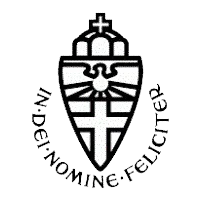Explore the credit course catalogue
5 Results

The course is practical and aims at teaching students how to:
- Use the programming environment R and RStudio, which includes installation, how to handle errors, problem solve and access helper documents.
- Use basic concepts of programming, such as data types, logical and arithmetic operators, if else conditions, loops and functions.
- Use common R packages to perform basic statistical analysis (e.g., t-test, chi2-test, correlation) and visual presentation (e.g., boxplot, histogram and heat-map) of data in R.
The course is structured with the intent to gradually make students more autonomous in writing code. Starting by introducing a concept through a lecture, then providing formative quizzes and tasks relateed to the concept. This all leads up to a project (exam) where the student gets to combine multiple concepts into a project with the intent of solving a certain problem or displaying specific statistical tests of visual components.

This course will elevate your AI proficiency, preparing you to actively engage in the digital evolution of healthcare. It offers a comprehensive perspective on the healthcare shift, steered by medical necessities, and bolstered by innovative artificial intelligence solutions.

Topics covered include:
- Basic fluorescence microscopy
- Fluorescence lifetime imaging (FLIM), 2P excitation
- Fluorescence resonance energy transfer (FRET)
- Stochastic optical reconstruction microscopy (d-STORM)
- 3D-Electron microscopy, focused-ion beam (FIB) milling and scanning EM, specimen preparation and embedding.

This course will focus on behavioural, psychological, neurobiological, and neuropsychological processes underlying the acquisition of new knowledge and its subsequent consolidation and retrieval in human animals. Where possible, attempts will be made to integrate these levels in a multidisciplinary framework. Additionally, the application of learning and memory paradigms in clinical and cognitive research will be discussed.

This course will provide students with a thorough background in the newly emergent field of social cognitive neuroscience. A broad range of social phenomena will be examined at multiple levels (1) the social level including experience and behaviors (2) the cognitive level which deals with information processing systems and (3) the neural level which deals with brain/neuronal bases of the first two levels.


